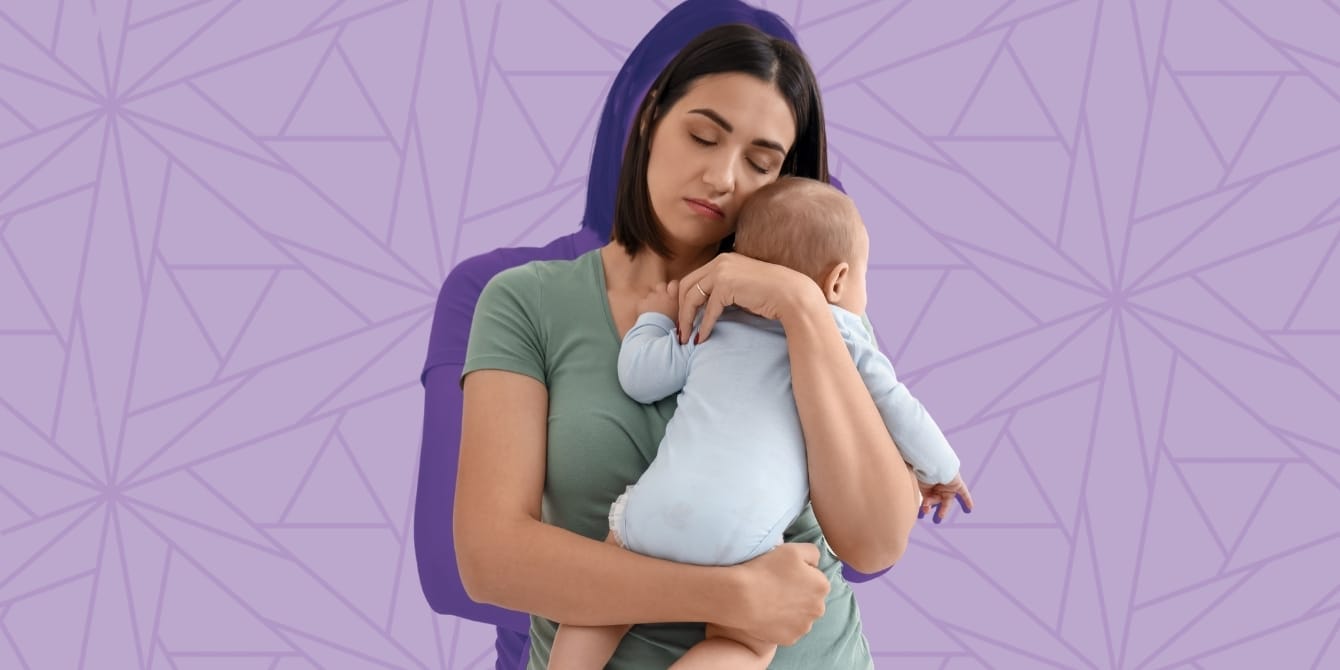We need to talk about postpartum depression (PPD). A new study has revealed that the rate of postpartum depression has doubled over the past decade, jumping from 9% in 2010 to 19% in 2021. For moms everywhere, this is both a wake-up call and a window into what’s really going on behind closed nursery doors.
So, why the big jump? There’s “good” news buried in this story: we’re getting better at seeing and naming what moms are going through. Increased screening has helped more women get diagnosed and, ideally, treated. But the full picture? America still does not do enough to prevent depression in mothers or ensure they receive the holistic help and support they need.
What the study found
The research, which analyzed data from over 440,000 pregnancies in Kaiser Permanente Southern California, highlighted a few key trends:
- It’s not just you: Postpartum depression is affecting more moms across all groups. Rates were highest for non-Hispanic Black and White mothers, but the biggest jumps were among Asian and Pacific Islander moms (up 280%) and Black moms (up 140%).
- BMI connection: Moms with higher pre-pregnancy Body Mass Index (BMI) were significantly more likely to experience PPD, pointing to the overlap between physical and mental health.
- Pandemic effect: COVID-19 threw isolation, fear, and stress into overdrive, especially for new moms navigating pregnancy and postpartum care in a disconnected world.
Related: Joy-Anna Duggar opens up about postpartum depression: ‘The darkest time of my life’
More than “baby blues”
PPD isn’t just feeling sad or overwhelmed (which, let’s be real, happens to everyone when you’re surviving on no sleep). It is a serious mood disorder that can cause long-term health challenges for both moms and their babies. And when it’s left untreated? The stakes get even higher: strained relationships, developmental delays for the baby, and in extreme cases, thoughts of self-harm.
This crisis isn’t just personal—it’s systemic. The U.S. Surgeon General has flagged maternal mental health as an urgent issue, because when moms aren’t okay, their kids aren’t okay either. Research backs this up: a mother’s well-being is the single most important factor in a child’s overall health.
Why is this happening?
Let’s zoom out. The rise in PPD rates isn’t just about better screenings. It’s also tied to how America treats mothers—or more accurately, how it doesn’t:
- No paid maternity leave: The U.S. is still the only industrialized country without federally mandated paid leave. (Yes, you read that right.) We hurt families when they’re at their most vulnerable. No wonder we’re in crisis.
- Unaffordable childcare: For many families, the cost of daycare is comparable to college tuition. And that’s if you can even find a spot. A lack of affordable childcare has ripple effects for women and their wellbeing.
- A lack of care culture: Who shows up for moms? Too often, the answer is: nobody. Moms often feel judged for admitting they’re struggling, with some even fearing they’ll be reported to Child Protective Services. This stigma keeps many women from seeking help.
The pandemic didn’t create these problems, but it likely made them worse. The isolation, financial stress, and increased mental load moms have carried since 2020 are still showing up—in PPD diagnoses, in burnout, and in the unshakable feeling that society is failing its mothers.
Mothers need change, and they need it now
Moms can’t do it all alone, and they shouldn’t have to. Here’s what would actually help:
- Screen for postpartum depression early and often: Regular PPD screenings at prenatal and postpartum visits are essential.
- Policy solutions: Paid leave, affordable childcare, and extended postpartum health coverage are the bare minimum.
- Cultural support: America’s culture of individualism harms mothers and families. Full stop. We need to normalize showing up for moms. And moms need to feel empowered (and not like failures) asking for help. That’s why we do what we do at Motherly, building a community—both online and IRL—where moms can share their struggles without shame.
Related: I thought I could beat postpartum depression on my own, but it was beating me
Moms matter most
At its core, this isn’t just about mental health—it’s about setting families up to thrive. Research is clear: when moms are well, kids do better. When moms are supported, society benefits. And when moms are thriving? That’s when we all win.
It’s time to stop treating this as a personal problem and recognize it for what it is: a public health crisis. A cultural crisis. And families cannot function in crisis. Mothers deserve better. And the rising rates of postpartum depression are proof that we can’t wait any longer to make that happen.
A note from Motherly
Postpartum depression resources
If you’re experiencing any postpartum mood symptoms, no matter how mild, know that help is available. Reach out to your healthcare provider about next steps and potential treatment options, such as more support at home, therapy or medication. If you’re in crisis, reach out to a crisis hotline or dial 988 or 911 for immediate support.
The phone numbers listed below are available 24/7 to help you with suicidal thoughts or other mental health crises.
Sources:
- Trends in Postpartum Depression. 2024. Jama Network. Trends in Postpartum Depression by Race, Ethnicity, and Prepregnancy Body Mass Index.
- Advisory on the Mental Health and Well-Being of Parents. 2024. U.S. Department of Health and Human Services. U.S. Surgeon General Issues Advisory on the Mental Health and Well-Being of Parents.

